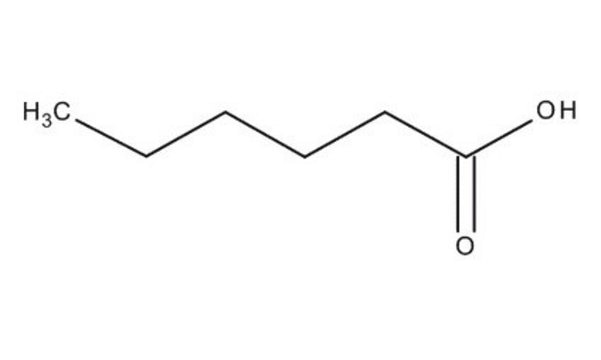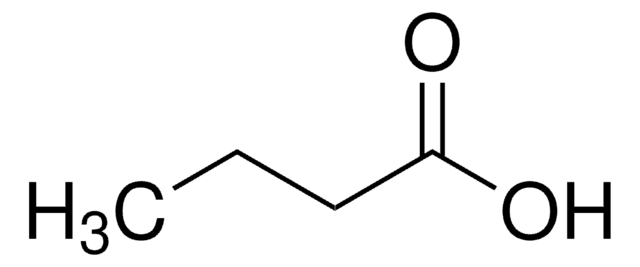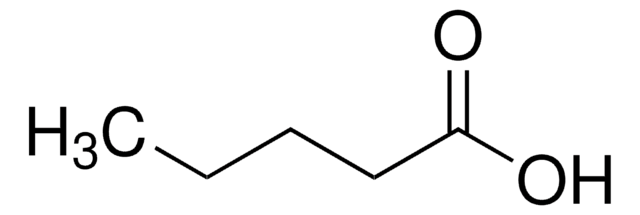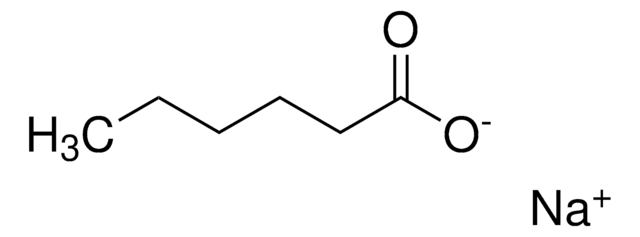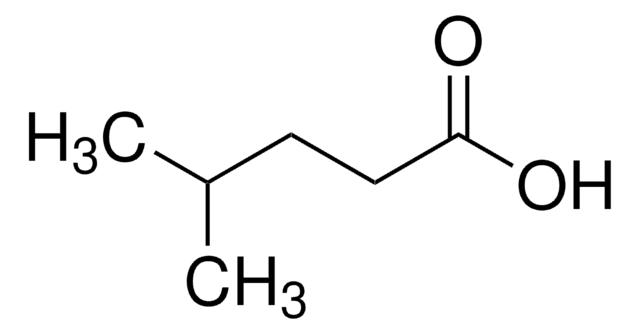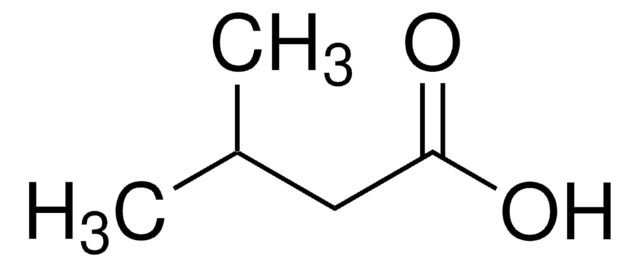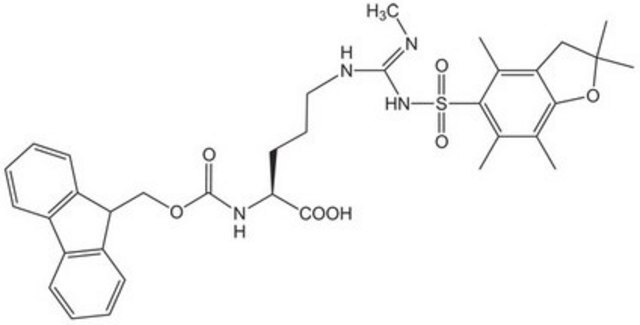153745
Hexanoic acid
≥99%
Synonym(s):
Acid C6, Caproic acid
About This Item
Recommended Products
vapor density
4 (vs air)
Quality Level
vapor pressure
0.18 mmHg ( 20 °C)
assay
≥99%
form
liquid
refractive index
n20/D 1.4161 (lit.)
bp
202-203 °C (lit.)
mp
−4 °C (lit.)
solubility
H2O: slightly soluble
diethyl ether: easily soluble
ethanol: easily soluble
density
0.927 g/mL at 25 °C (lit.)
organoleptic
pungent
SMILES string
CCCCCC(O)=O
InChI
1S/C6H12O2/c1-2-3-4-5-6(7)8/h2-5H2,1H3,(H,7,8)
InChI key
FUZZWVXGSFPDMH-UHFFFAOYSA-N
Looking for similar products? Visit Product Comparison Guide
Related Categories
General description
Application
- To prepare polyethylene glycol derived nanomicelles as a non-viral gene carrier.
- As a starting material to synthesize an amino acid L-norleucine.
- As a reactant to prepare 4-methoxy phenyl hexyl ketone through Friedel−Crafts acylation of anisole using Hβ zeolite-based catalyst.
- As a template in the preparation of highly conducting thin polypyrrole coated alumina composite particles.
signalword
Danger
hcodes
Hazard Classifications
Eye Dam. 1 - Skin Corr. 1C
Storage Class
8A - Combustible, corrosive hazardous materials
wgk_germany
WGK 1
flash_point_f
215.6 °F - closed cup
flash_point_c
102 °C - closed cup
ppe
Faceshields, Gloves, Goggles, type ABEK (EN14387) respirator filter
Certificates of Analysis (COA)
Search for Certificates of Analysis (COA) by entering the products Lot/Batch Number. Lot and Batch Numbers can be found on a product’s label following the words ‘Lot’ or ‘Batch’.
Already Own This Product?
Find documentation for the products that you have recently purchased in the Document Library.
Customers Also Viewed
Protocols
In this study, SPME was used for the analysis of free fatty acids in Parmesan cheese using a 65 μm Carbowax/divinylbenzene (DVB) SPME fiber. Headspace extraction of the cheese sample was conducted at 65 °C for 15 minutes and analyzed by GC with FID detection. SPME is ideal for analyzing the volatiles associated with solid food samples. The phase chemistry of the Nukol GC column provides excellent peak shape of acidic compounds.
Our team of scientists has experience in all areas of research including Life Science, Material Science, Chemical Synthesis, Chromatography, Analytical and many others.
Contact Technical Service
